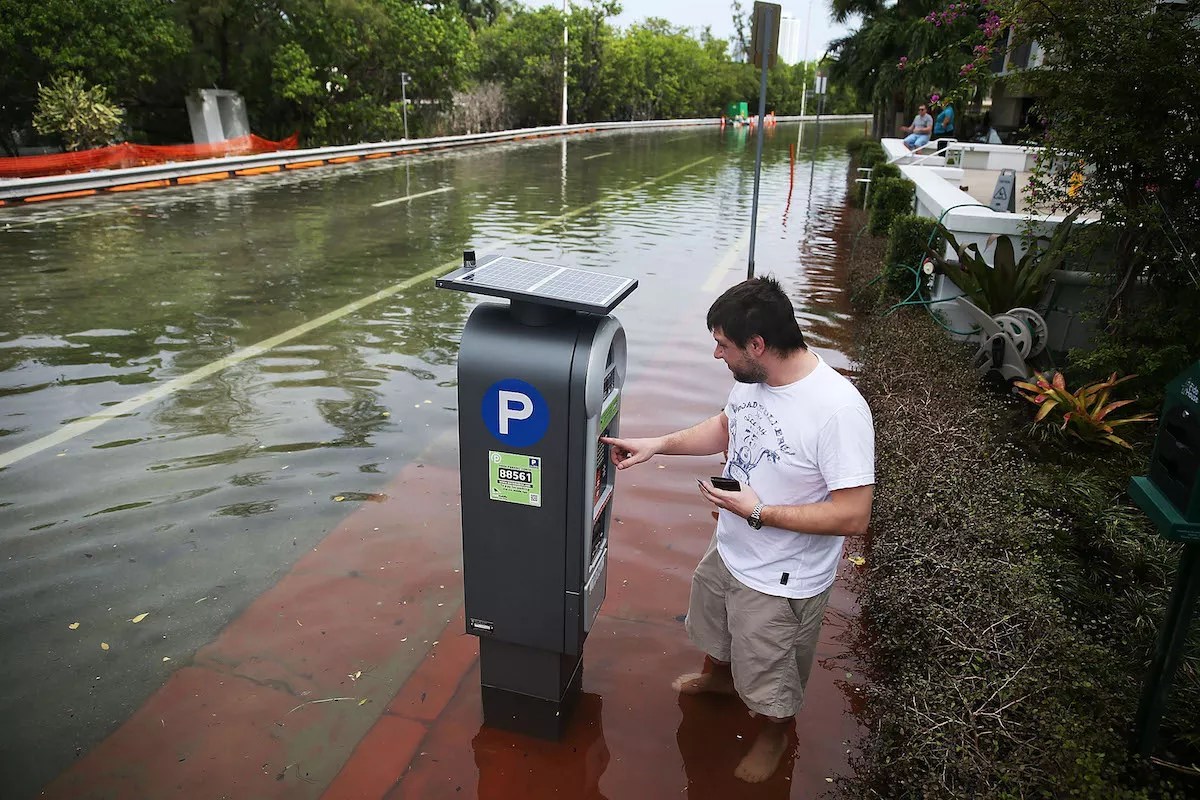
Photo by Joe Raedle / Getty Images

Audio By Carbonatix
You haven’t truly lived in Miami until you’ve seen an iguana in the wild, had your car towed while legally parked, and paid an insane high-four-figure deposit to whatever shell company owns your condo unit. Luckily, it’s extremely possible to hit all three of these milestones during your first week in the 305.
No matter where you’re relocating from, you’ll soon learn the Magic City is a breed of its own. It’s a metropolis, sure, but Miami doesn’t quite have the same big-city vibes as a place like New York or Boston. But it also lacks the suburban sensibility or Deep South demeanor of the rest of Florida. Things are just kind of different here, and that’s how we like it. So before you finish unpacking, here are five practical things to know if you’re new to Miami:
North Beach ? North Miami Beach ? North Miami
There are 34 cities in Miami-Dade County, and differentiating between them all can be a real slog. Take, for instance, Miami Springs, Miami Lakes, and Miami Shores, which are three cities with similar names yet very different cultures. Hialeah and Hialeah Gardens, meanwhile, are two adjacent municipalities with different governments and police forces. And don’t forget there’s a North Miami, a South Miami, and a West Miami but no East Miami. Perhaps most confusing is the city of North Miami Beach, which contains no beach and should not be confused with North Beach, an oceanfront neighborhood in the city of Miami Beach. If it sounds confusing, that’s because it is.
The I-95 express lanes are a scam – sometimes
If you’re one of those poor souls commuting from Broward County to Miami-Dade, prepare to get acquainted with I-95. On any given day, the express lanes could be your saving grace or your greatest enemy. Regardless (or irregardless, as the locals say), unless you’re rich, paying tolls twice a day is a slow route to bankruptcy court. Check a traffic app such as Waze to see if you can hang tight in the regular lanes or if it’s worth paying a little more to get to work on time. Be aware that the tolls fluctuate based on traffic, meaning that when more cars are on the road, it becomes more expensive to drive in the express lanes. A good trick: If the toll is really high (say, $9 or more) or really low (under $3), take the regular lanes – the express lanes won’t get you where you need to go any faster. If it’s in the $5-to-$8 range, you’ll know there aren’t a ton of cars clogging the express lanes, but still enough traffic in the regular lanes to make it worth your while to pay the toll. Of course, if your place of employment allows you to expense the tolls or bill a client, by all means, do that.
Don’t forget there’s a North Miami, a South Miami, and a West Miami but no East Miami.
Everyone has roaches, so don’t take it personally
Florida is more or less the perfect environment for all sorts of critters, none more despised than the hideous yet resilient cockroach. The ugly truth is that roaches (or palmetto bugs, if you’re so inclined) are basically everywhere in Miami. It’s not an indictment of your cleaning skills if you see one skitter across the floor every once in a while when you’re watching Narcos. According to the most recent U.S. Census figures, Miami is the third most cockroach-infested city in America (behind New Orleans and Houston). Think of it this way: At least your hiking boots are good for something here.
Expect to pay for parking almost everywhere
Gone are the days of free street parking. In most places in South Florida (which, by the way, is typically defined as Miami-Dade, Broward, and Palm Beach Counties), you have to pay for the privilege of leaving your car in direct sunlight or a hilariously designed parking garage. The good news: You can almost always pay for parking through an app on your phone. The bad news: Different cities use different apps, so you’ll need to download all of them. Most notable and annoying, Miami Beach uses the app ParkMobile, while the City of Miami uses PayByPhone. Don’t forget to check the fine print before leaving your car in a so-called public garage or parking lot. Many of them are privately operated and don’t use the apps, and some even jack up their prices after advertising an introductory rate (be aware of signs that offer “$3!” in large font followed by “first half-hour” in 12-point type).
Wear sunscreen
The advice in the 1999 Baz Luhrmann song still holds true 20 years later. If you haven’t already noticed, most days in Miami are absolutely boiling. Unless you want to look like the hide of a football by the time you’re 50, make a habit of slathering yourself with SPF every morning. If you plan to go for a dip in the ocean, be sure to wear a reef-safe formula, because scientists say some chemical sunscreens are toxic to the area’s already imperiled coral.